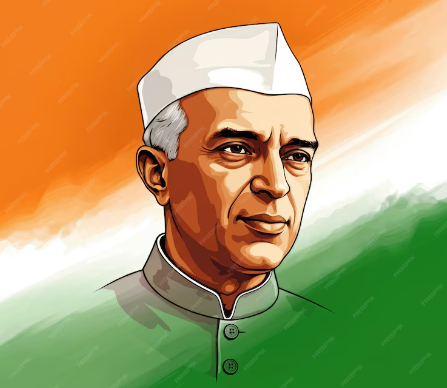November 14 is celebrated across India as Children’s Day, honouring the birth anniversary of Pandit Jawaharlal Nehru, the nation’s first Prime Minister. A visionary for children’s welfare and education, Nehru was posthumously commemorated in 1964 when the Indian government declared this date as Children’s Day. This decision acknowledged his passionate advocacy for children’s rights and well-being.
Nehru’s Early Life and Education
Born in 1889 in Allahabad (now Prayagraj), Nehru came from a prominent Kashmiri Pandit family. His father, Motilal Nehru, was a distinguished lawyer and an influential leader in the Indian freedom movement. Nehru’s upbringing in an affluent family afforded him access to quality education. He attended Harrow School for his early studies and later graduated from Trinity College, Cambridge, establishing a strong foundation that would influence his political career and vision for India.
Political Achievements and the Fight for Freedom
Nehru emerged as one of India’s prominent leaders during the struggle for independence. He played a key role in the Indian National Congress, actively participating in pivotal movements such as the Non-Cooperation Movement and the Quit India Movement. His leadership and dedication contributed significantly to the formation of a sovereign and modern India.
Nehru’s Vision for Children’s Education
Pandit Nehru held a deep belief in nurturing children, famously stating, “The children of today will make the India of tomorrow.” His commitment extended beyond rhetoric; he laid the foundation for premier educational institutions like the Indian Institutes of Technology (IITs) to cultivate a skilled and innovative generation.
Nehru was endearingly called ‘Chacha Nehru’ by children, a testament to his affectionate and approachable nature. His efforts to empower young minds highlighted his vision for a progressive India driven by educated, capable youth.
Top 10 Quotes by Jawaharlal Nehru
On this Children’s Day, we revisit some of Nehru’s most inspiring words:
- “We live in a wonderful world that is full of beauty, charm and adventure. There is no end to the adventures we can have if only we seek them with our eyes open.”
- “Facts are facts and will not disappear on account of your likes.”
- “A language is something infinitely greater than grammar and philology.”
- “Evil unchecked grows, evil tolerated poisons the whole system.”
- “Life is like a game of cards. The hand that is dealt you is determinism; the way you play it is free will.”
- “The policy of being too cautious is the greatest risk of all.”
- “The children of today will make the India of tomorrow.”
- “Politics and religion are obsolete. The time has come for science and spirituality.”
- “Time is not measured by the passing of years but by what one does, what one feels, and what one achieves.”
- “Children are like buds in a garden and should be carefully and lovingly nurtured.”
Conclusion
Pandit Jawaharlal Nehru’s legacy as a leader and advocate for children continues to resonate with India’s pursuit of educational and societal progress. As we celebrate Children’s Day, it is a fitting moment to remember Nehru’s dedication to empowering young minds and fostering a brighter future for the nation.











